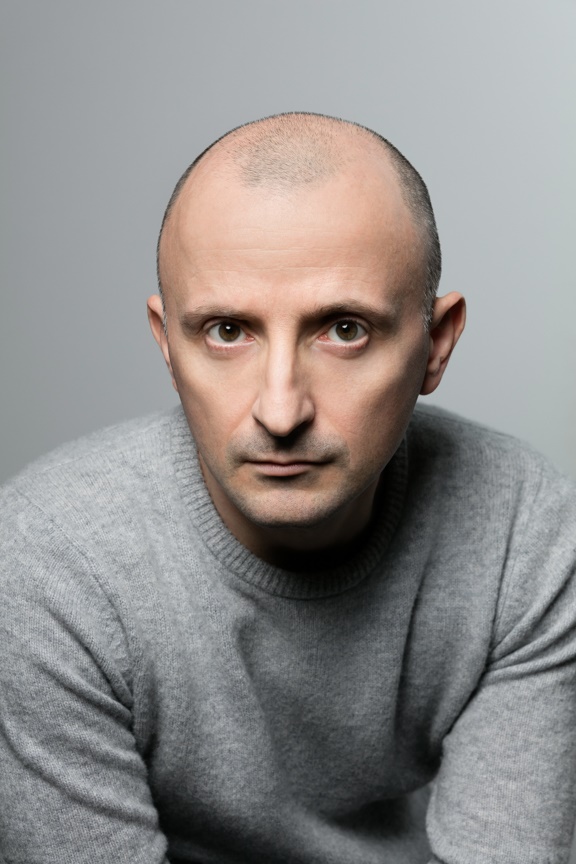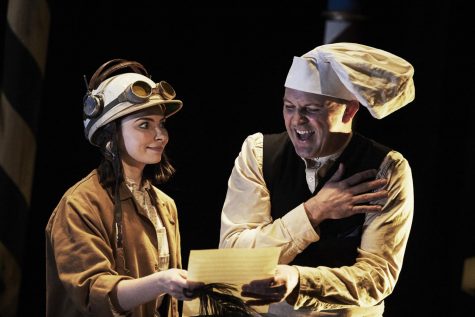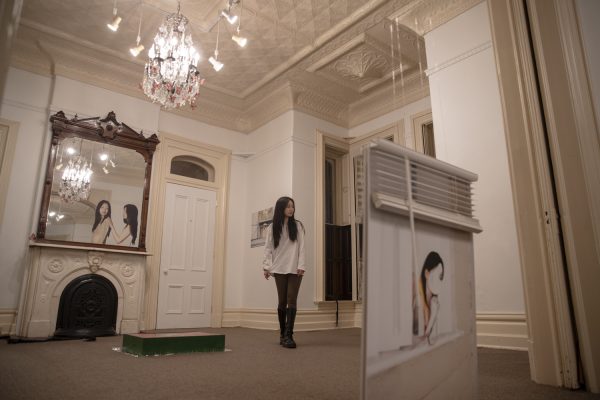A fiction writing career based on real life
Salvatore Scibona, winner of the Guggenheim Fellowship, a Pushcart Prize, an O. Henry Award, and a Whiting Award, celebrated his new novel The Volunteer in a reading at Prairie Lights.
Contributed
March 11, 2019
Salvatore Scibona has a letter written over his typewriter from fellow writer Andrew Meredith. It reads, “If we sit at the desk with enough openness, enough love, enough coffee, then we will have good days and a good life.”
If this advice for success is true, then author Scibona has certainly subscribed to it. On Monday at 7 p.m., he read excerpts from his new novel, The Volunteer, at Prairie Lights. Scibona has won a Guggenheim Fellowship, a Pushcart Prize, an O. Henry Award, and a Whiting Award for his past work. His most recent novel draws on real-life experiences.
“It begins with an episode taken from life,” Scibona said in an email to The Daily Iowan. “In a German airport, I saw a child about 5 years old, crying. He kept on crying for a long time, inconsolably. Eventually, I learned that no one could figure out what language he was speaking. For all I know to this day, someone had abandoned him there.”
After being deeply touched by seeing the boy at the airport, he felt compelled to create a fictional account of the boy’s origins.
“I left the country and never saw him again,” he said. “I never learned another factual thing about him. This was all an emotional shock, and its effect on me didn’t diminish but grew with time. I had to do something with it. The book is my way of answering, fictionally, how the boy arrived where he was.”
Scibona sees fiction as a personal matter, in which the reader can choose what to “take” from a book. He doesn’t seek to persuade his readers of anything, other than the worlds in which he writes his books.
“I have no ambition to teach anyone anything,” he said. “What the reader takes from it is her own affair. In this regard, I think fiction, at least the fiction that means the most to me, is different from most forms of [literature]. The only thing of which I am trying to persuade the reader is the reality of the fictional world.”
RELATED: https://dailyiowan.com/2019/02/26/author-mark-mayer-walks-the-tightrope-of-mystical-fiction/
In order to achieve this, Scibona believes in the hard work and dedication put into writing a novel, as well as the patience of letting a book grow in its own time.
“The cliché in this case is true: that 90 percent of the work is showing up,” he said. “As long as I get to my desk every morning and put in my hours, the book continues to grow. It determines its own gestation period.”
He also adheres to the common writer’s rule of “you write what you read.”
“You have to read— for pleasure,” Scibona said. “Once you get a bead on the unique pleasure a particular writer can give you, your effort falls away, and they begin to work their strange magic on the way you think and, inevitably, the way you write.”
This “strange magic” has been connected by many to Iowa City itself, and Scibona sees the City of Literature as a necessary reality-check for those wishing to realize the dream of writing a novel themselves.
“Writers all over the world who have never been within 100 miles of Iowa City think of going to the Workshop with fearful hope,” Scibona said. “The writing life before Iowa City is perfect, hopeful, but to some degree imaginary. The life after is subject to the disappointment of actual mistakes but is mature and real. [Once you finish, though,] on your desk sits a stack of papers: what you made.”




















